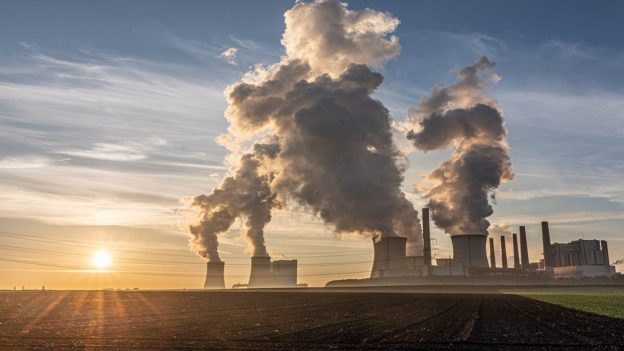Sustainability for MSMEs: The commitment towards combating climate change, and that too in a swift manner, should not be delivered at the cost of indigenous stakeholders. This holds even more relevance for developing economies.
Sustainability for MSMEs: The recently released World Economic Forum Global Risks Report 2022 lists climate action failure as the most severe threat that the world is facing today, followed by extreme weather and biodiversity loss. The 2021 United Nations Climate Change Conference, or COP26, demanded countries to come forward and pledge to achieve net zero carbon emissions by 2050. Among other things, India made two primary commitments at the Conference. First, to fulfil half of the country’s energy requirements through renewable energy by 2030. And second, achieving the target of net-zero carbon emissions by 2070. This can only be accomplished by phasing out usage of coal, increasing investment in renewables, controlling deforestation and pacing up switch to electric vehicles.
As of 2021, we have witnessed a global temperature rise of 1.2°C over preindustrial levels. Even with 1.5°C of warming by the end of the century, which is the goal of the Paris Agreement and seems difficult to achieve, the world is likely to see a significant sea-level rise, unseen floods and droughts, and widespread loss of biodiversity. The increasing awareness and action to mitigate climate change could result in calling for an end to fossil fuels and putting a price on carbon in coming years.
The commitment towards combating climate change, and that too in a swift manner, should not be delivered at the cost of indigenous stakeholders. This holds even more relevance for developing economies. Indian policy and regulation should stand the test of time in achieving the aforementioned climatic goals. And Indian MSMEs stand at the forefront of this test, facing a number of problems and challenges, as detailed further.
The first one is a two-pronged challenge revolving around the financial viability of combating climate change. With the objective to switch to clean energy, huge costs are involved to replace and upgrade existing infrastructure. This includes infrastructure at energy production as well as consumption end. Though developed countries are pledging to raise billions of dollars in climate financing, it is uncertain whether allocated funds would bridge the financial gap in curtailing carbon emissions. One fair possibility is to fund this cause at the expense of other public schemes and initiatives. This might further skew the fiscal deficit to our economic disadvantage.
The other side of this challenge is the cost of energy harnessed through renewables. An increase in the cost of energy will result in the increased price of goods produced by MSMEs that will diminish the demand, maybe to the extent of wiping out small industries in some cases. Moreover, the energy needs of the country are increasing year on year, adding on to energy price volatility and increasing the marginal cost of energy production through renewables.
The next major challenge is to prepare MSMEs for this transition. MSMEs primarily react to climate change impacts rather than anticipate and plan for these. It is the responsibility of the government to handhold small entities through sector-wise intervention so that the shocks specific to certain groups of MSMEs can be identified and dealt with carefully. This is where throwing money at the problem will not serve the purpose.
The major effects of climate change impacts are rising temperature, precipitation changes, rising sea levels, increase in extreme weather events, etc. The impacts of these phenomena can be classified as either direct like damage to physical assets or indirect like changes in the business environment, new regulations, change in demand and supply, etc. Devising thought-through procedures to tackle these impacts shall be of paramount importance.
Other challenges in driving the climate change agenda would include tackling limited awareness among MSMEs, building a conducive regulatory environment, waste management and unruffled adoption of clean energy. Each of these concerns has to be dealt with proper policy and implementation initiatives.
But even with the existence of numerous challenges for MSMEs, the situation has a silver lining to it. Adoption to the switch to clean energy in a streamlined manner could mean a time advantage to the Indian economy. Many countries competing with India today would be in a difficult position to achieve net-zero emissions, considering the size of the goal to be achieved. Early and smooth transition would definitely bring a competitive advantage.
Technology and innovation would be pivotal in how well this transition is affected. The journey of combating climate change can be straight sailing by creating responsible competitiveness among MSMEs. Sector-based communities should be created for industries like textiles and metal-working which include a major number of MSME units. Objectives like monitoring carbon emission, energy efficiency, solar penetration, etc. can be achieved through technological intervention only which needs to be well-received by MSMEs. Infrastructure and technological upgradation across MSMEs would result in the creation of new markets as well. Shifting to renewable energy would occur by the production of more solar farms/panels, hydroelectric power plants, windmills, etc. which would stir MSMEs in local geography.
The next decade or so shall witness the emergence of new MSME industries in light of this transition. These shall include producing products and services that are directly or indirectly linked to the shift in energy production and usage patterns. This shall also pose as a huge opportunity from a productivity and employment standpoint.
In the words of Phil McGraw, “Awareness without action is worthless”. It is high time we play our part to not only continue this dialogue but to further the climate change agenda to fruition. Only then we can expect to witness the time when climatic equilibrium is restored across the globe.
https://www.financialexpress.com/industry/sme/cafe-sme/msme-sust-indian-msmes-stand-at-the-forefront-of-fight-against-climate-change-facing-multiple-challenges/2445888/





